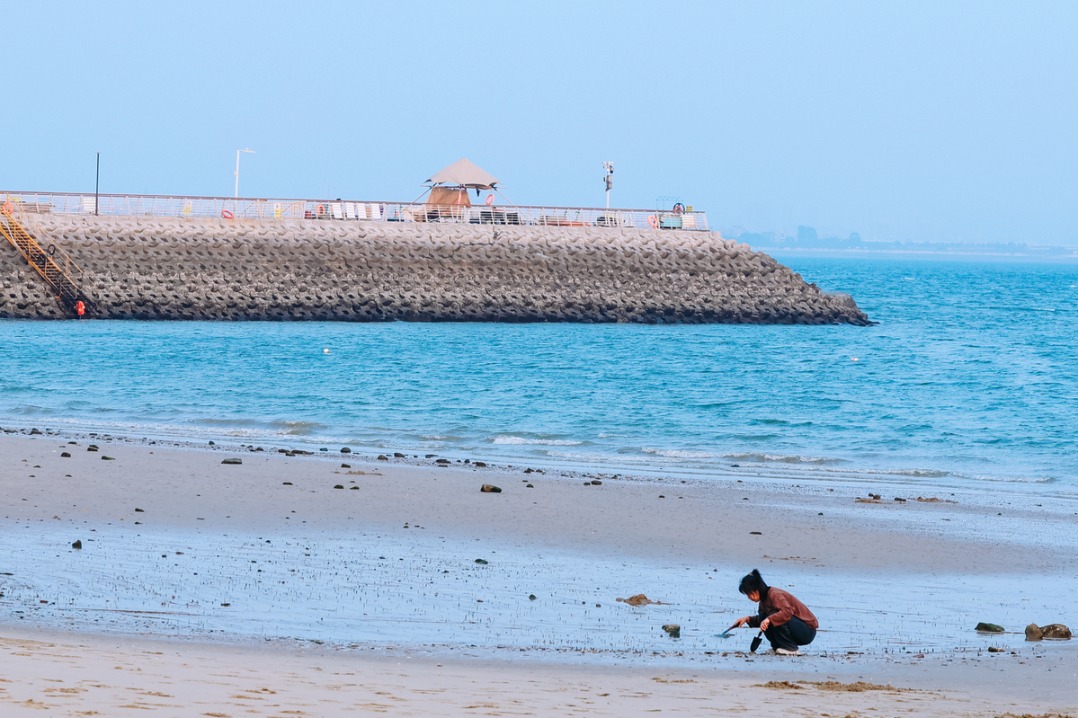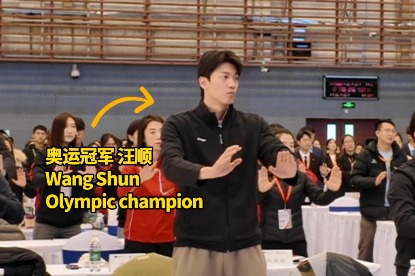Policymakers, lawmakers respond to opinion voiced online


Laborer's life, student's death attract widespread attention
Millions of netizens have voiced their sympathy for a middle-aged laborer who tested positive for COVID-19 last week and a teenage student who killed himself after allegedly being twice deserted by his parents.
The two cases also triggered discussion on how public opinion is formed quickly and the way in which government agencies interact with the public in the era of social media.
The laborer, 44, who has only been named as Yue, works at night carrying building materials at construction sites in Beijing. Details of his movements, released on Jan 19, show he has a tough life, often doing more than one job in the city.
He told reporters he used to work as a fisherman in Weihai, Shandong province, and traveled to Beijing to look for his missing son.
In the other case, Liu Xuezhou, 17, killed himself early on Monday after leaving a long suicide note on Sina Weibo, saying that he was sold by his biological parents when he was 3 months old, and that in December, police helped him find his birth parents by using a DNA test.
However, his birth parents had divorced and neither wanted to see him. Liu's mother also blocked him on WeChat.
A few hours after his death, police in Datong, Shanxi province, said on social media they would investigate Liu's claim that his birth parents sold him. The police had helped him locate his birth parents one month earlier. Results of the investigation will be made available to the public.
In Yue's case, many people blamed police after media reports on Jan 20 said that he claimed they had attempted to pressure him to recognize a body as that of his missing son, so that they could "conclude the case as early as possible".
On Jan 21, police in Weihai issued a notice saying that the 19-year-old son, who disappeared in Rongcheng, near Weihai, on Aug 12, 2020, had been found dead in a local pond on Aug 26 that year.
Police said a DNA test carried out on Yue and his wife confirmed that the body was that of their son, but as the couple had refused to accept the test results, the corpse had not been cremated.
Experts said both cases shed light on interaction between the public and administrators in the internet era.
Yang Weidong, law professor at China University of Political Science and Law, said: "The public noticed a single incident on the internet, their observations turned the incident into a heated debate, and government agencies responded. This is a brand-new way of the public taking part in State governance."
Opinion forms after a large number of people notice a particular incident, such as Yue's case, Yang said.
"Everyone empathizes over the laborer's story. Some reacted strongly to the hard life he has to lead, some to his being a father, and some to his accusation that the police did not disclose sufficient information promptly," he added.
"People voice their opinion on a single incident, administrators and legislators see such opinion and reflect on the problems. This issue is ongoing and some related problems will be revealed, such as how to provide social welfare for laborers such as Yue, and how the police can better win people's trust."
Zheng Ning, head of the law department at Communication University of China's Cultural Industries Management School, said that for an incident to trigger heated debate, it needs to touch on feelings prevalent in society.
She added, "Yue's case triggered public sympathy for the weak, a measure of dissatisfaction toward the rich, and drew attention to the pursuit of dramatic conflicts."
In such cases, public opinion is often polarized. People either feel strongly for the hero in an incident, or condemn him or her severely. "They see only black or white when it comes to these issues," Zheng said.
There are also "twists" to such cases, with the public tending to switch between supporting a particular person, or withdrawing their backing with every development in a particular incident.
One such case involves the death of Li Xincao, 18, a college student found drowned in a river in Kunming, Yunnan province, in 2019. Her mother, Chen Meilian, frequently posted online, questioning the behavior of local police in handling the tragic incident involving her daughter.
Chen said police told her that Li committed suicide, but the mother challenged this, posting a three-minute clip of surveillance footage taken in a bar that showed a man twice slapping Li's face, and her crying.
Li's case attracted widespread attention online. Women's safety, gangster crime and the Kunming police's handling of the incident have become heated issues on the internet.
In a reference to Chen, People's Daily posted on Sina Weibo in October 2019, "May there be fewer desperate mothers".
Police then reinvestigated the case. Every time more information was disclosed about Li's death, many people changed their attitude toward her and the police. Some even blamed her harshly for going to a bar with men.
Diversified voices
Yang, from China University of Political Science and Law, said people take part in State governance by drawing the attention of legislators, administrators or policymakers to a controversial issue.
"This new method of public participation includes more people from different sectors of society and more diversified voices from different angles," he said.
Liu Leming, associate professor at East China University of Political Science and Law in Shanghai, said: "In the past, media reports would draw the focus of government agencies to social problems or incidents. In this way, a news event occurring in a certain location gets to be known by more people across the country.
"In the internet era, everyone has the right to post and share what they see and how they feel. This process has become faster and easier, meaning that government agencies have to follow up and respond more quickly," he said.
In other words, the internet is acting as a channel for government agencies to learn about social problems and understand public demand, he added.
Lawsuit launched
One social problem, involving insufficient protection of personal information, came to light after a lawsuit brought against a wildlife park in Hangzhou, Zhejiang province, attracted considerable attention.
Guo Bing, a local resident, took the city's safari park to court in 2019 after it asked him to provide facial recognition information. The park adopted a face-scanning system for entry, meaning that Guo could no longer use his annual pass if he did not comply with the new requirements.
The case triggered intense discussion on whether facial recognition technology is used excessively by businesses and government bodies.
In April, Hangzhou Intermediate People's Court ruled in favor of Guo.
Six months later, the Personal Information Law took effect, defining facial recognition as sensitive information that should be given special and stronger protection.
The law stipulates that sensitive information must only be collected or used for maintaining national and public security, and no one can force others to provide such data.
The Supreme People's Court, China's top court, also issued a guideline on use of the technology, stating that shops installing face-scanning systems to collect consumers' data without obtaining permission, and software operators forcing users to give their facial data, violate the right to privacy.
Yang said: "Guo's case brought the need for sufficient privacy protection to the attention of legislators, who added the facial recognition clause when they were drafting the law.
"In this case, public opinion made legislators aware of social problems, prompting them to find answers, and bringing about changes in the law."
Sang Yucheng, a professor at Fudan University's School of International Relations and Public Affairs, said the government should study public opinion and improve administrative measures.
"The government's work must heed public opinion. Public participation in discussions on issues that capture nationwide attention provides a strong reference point for decision-makers in upholding people-oriented governance," he said.
After police reinvestigated Li's drowning, a court in Kunming sentenced a man to 18 months in prison in September 2020 for negligently causing the student's death.
Also that month, disciplinary inspection authorities in the city punished 16 police officers for insufficiently fulfilling their duty and for sub-standard practice of the law in Li's case.
Liu, from East China University of Political Science and Law, said government departments should respond promptly to public concerns.
"When public issues emerge, people who are involved in social problems or incidents want to know, more than anything, whether their requests have been seen and who will handle their concerns," he said.
"In the case of Liu (the student who killed himself), Datong police acted quickly. They acknowledged they had received a report from netizens, stated that an investigation into Liu's parents had already been launched, and added that further information would be disclosed to the public."
Liu added, "Solving heated issues is a way for the government to achieve better performance."
Shan Xuegang, deputy director of the public opinion data center affiliated with the People's Daily website, said government agencies had responded much more quickly to public opinion in recent years, but such responses vary in quality.
"In some cases, there are insufficient details or no follow-up action," he said.
Shan added that the agencies need to develop the ability to assess from the huge number of posts online what the real problem is before responding to the public.
"Blindly catering to netizens, or just ignoring them, are both undesirable," he said.





































